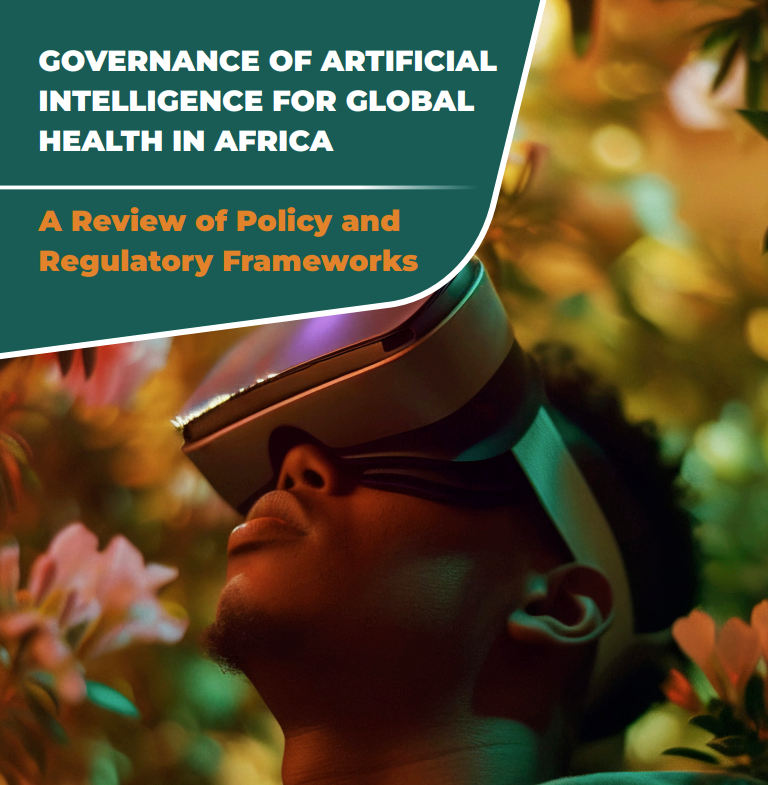Governance of Artificial Intelligence for Global Health in Africa

Governance of Artificial Intelligence for Global Health in Africa
A Review of Policy and Regulatory Frameworks
The role and impacts of AI and data science in global health have far-reaching policy, research, economic, and political implications, driven by rapid advancements that transform individuals, industries, economies, and society at large. These technologies are particularly impactful in sectors such as agriculture, health, manufacturing, and finance. In global health, they revolutionize medical service delivery, the production of new medical devices and pharmaceuticals, and health research, especially in fields like genomics, pandemics, and clinical trials.
This report, prepared by the Science for Africa Foundation (SFA Foundation), provides a comprehensive review of the governance of AI and data science for global health in Africa. It is based on a multifaceted methodology that includes academic and grey literature reviews, online surveys, six regional convenings, stakeholder interviews, bibliometric and policy analysis, and a bilingual survey. The integration of multiple research methods and extensive stakeholder engagement across 43 countries and involving over 300 stakeholders ensures a richer and more nuanced perspective compared to studies relying on a single methodology. Additionally, compared to other reports that primarily focus on technological and ethical considerations without delving deeply into regional specifics or stakeholder engagement, the SFA Foundation’s report offers a granular, Africa-specific analysis backed by empirical data and stakeholder insights.
The findings emphasise the importance of local context, addressing urban-rural divides, gender considerations and indigenous knowledge systems, ensuring that the recommendations are both globally relevant and practically applicable within African contexts. The focus on gender and equity in AI policy frameworks, is an aspect often underrepresented in other reports, yet critical if AI governance is going to contributes to inclusive and equitable development.
Policy recommendations include the need for adaptive regulations and the strategic use of existing frameworks, such as the AU’s Digital Transformation Strategy, to create a robust AI governance structure tailored to African global health needs. While underscoring the importance of capacity building and trust, providing practical recommendations for innovative funding and institutional support to strengthen AI governance. Furthermore, policy recommendations emphasise science diplomacy and the necessity of African representation in international forums to ensure that global AI policies are inclusive and reflective of African priorities.
In summary this report contains rich empirical information on the status of AI policy and regulations for responsible and ethical AI for health and includes discussion of the challenges and opportunities for African countries developing effective governance regimes for the adoption of AI for global health in Africa. While the combination of desk review, policy analysis, bibliometric studies, and stakeholder perspectives provides a more integrated and actionable framework for AI health governance in Africa, making the report a valuable resource for policymakers, researchers, and stakeholders navigating the complexities of AI governance in the African context.
